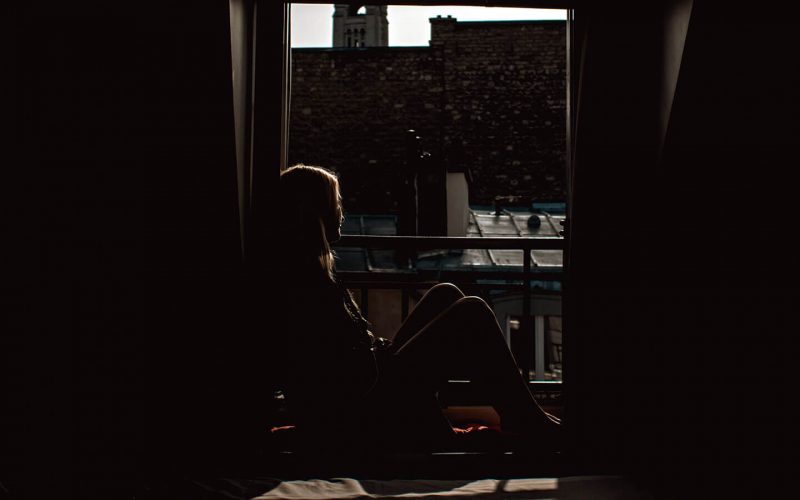
We all feel a bit sad, down, and deflated at times. It’s perfectly normal for our emotions to have ebbs and flows. But when these low feelings stay for longer periods of time, and are starting to impact on your daily life, this could be a sign that you might be depressed.
What is depression? Am I not just feeling ‘a bit sad’?
It’s normal to feel sad, fed up and a bit low sometimes. Our moods can fluctuate like this, it’s part of being human! When these emotions stick around for longer than usual, and may last a long period of time – it could be a sign of depression.
You might be noticing that life feels a bit mundane, and that you’re struggling to cope with daily life. When depression is at its worst, you might feel distressed or even suicidal.
If you’re in need of urgent help, please visit Samaritans or SHOUT. If you feel at risk of harming yourself, please call 999 for immediate help.
If you’re feeling depressed, it might be that you know why. For example, if you’ve recently lost someone, or are having money issues or relationship troubles – these can all negatively impact your mental health. You can even experience depression after ‘positive’ life events that you have planned for, such as becoming a parent or changing jobs! Sometimes though, there might not be an obvious reason why you feel low – and that’s okay too.
Depression is one of the most common mental health struggles people face. In fact, around 1 in 6 adults in Great Britain have experienced depressive symptoms.
When you think of it that way, it’s possible that many of the people you pass in the street each day, or sit next to on the bus each morning, have experienced or will experience depression at some point in their lives. While it can feel quite sad to think of it this way, it can also be comforting to know that you’re never alone in what you’re going through.
I’ve felt a bit down for a while now, and I feel much more tired than usual. Some days it’s hard to get out of bed at all. Am I depressed?
Let’s take a look at what some of the most common symptoms of depression are:
- Feeling down, low, or deflated most of the day
- Not enjoying the things you used to enjoy
- Feeling more tired than usual, or that you have no energy
- Low self-esteem or confidence
- Finding it tough to concentrate on things
- A change in your sleeping pattern and appetite
- Suicidal thoughts or thoughts about harming yourself
If you’re in need of urgent help, please visit Samaritans or SHOUT. If you are in immediate danger of hurting yourself or someone else, call 999 or visit your local A&E department.
For crisis support, click here. For more information on what a mental health crisis is, click here.
Depression can affect you in many ways. Your experience might look completely different to someone else’s, and that’s okay. There also isn’t just one cause of feeling depressed. Depression certainly isn’t a ‘one size fits all’, it’s personal for everyone.
The good news is there are many ways to overcome depression, and with the right support it can get better.
NHS Talking Therapies
We understand that asking for help is daunting, and it can feel really difficult to take that first step. It is important though, to get the right support sooner rather than later.
We offer a range of talking therapies, such as:
Through our support, we will help you to better understand your problems, work through any difficult feelings you may be experiencing, and develop coping strategies that you can take forward with you to help you feel better.
“The counsellor was very kind, understanding and supportive. They offered me a lot of help, useful guidance and techniques which I am using up to today. They helped me to manage my feelings and my life, and to feel happy and normal again. I am very grateful for all the help and support.”
Steps you can take right now
There are a lot of steps you can take to help with how you’re feeling.
- Talk to someone you trust. Talking about how you feel with someone you feel comfortable with can be incredibly helpful, and a great positive step to take. We know it might feel daunting to speak about how you feel, but a problem shared is a problem halved.
- Getting active can release chemicals that make you feel good, and this doesn’t have to be a full workout! Going for a short walk during the day can make a big difference to your mood.
- Stay connected with friends, family and loved ones. Depression can make us feel lonely and isolated, and making sure we’re keeping in touch with people can help us to avoid those feelings.
- Do the things you enjoy. If you have a hobby, interest, or something you like to do in your free time, try to keep up with these things (even when you don’t feel like it).
- Keep calm and breathe. There are a lot of great mindfulness apps, books, and activities you can do to help you relax. Breathing exercises can be particularly helpful when you’re feeling anxious or worried.
- Avoid alcohol, drugs and smoking. All of these can make your depression feel worse!
- Prioritise sleep and eat well. It’s important that you get enough sleep and eat foods that make you feel good to keep you feeling energised and refreshed.
- Ask for help and remember you are never alone in what you’re going through. You can speak to your GP about how you’re feeling, and it’s really easy to self-refer to NHS Talking Therapies. The right support can make a huge difference in how you’re feeling.



